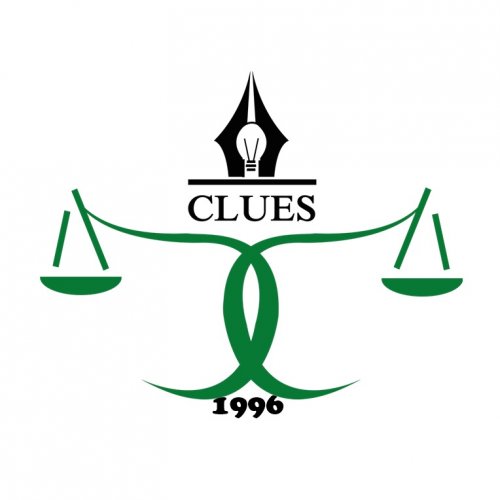Best ADR Mediation & Arbitration Lawyers in Bhutan
Share your needs with us, get contacted by law firms.
Free. Takes 2 min.
Or refine your search by selecting a city:
List of the best lawyers in Bhutan
About ADR Mediation & Arbitration Law in Bhutan
Alternative Dispute Resolution (ADR) methods such as mediation and arbitration are increasingly popular in Bhutan as means to resolve disputes outside the formal judicial process. These methods are promoted for their efficiency, reduced costs, and the potential for preserving relationships between parties. Bhutanese legal frameworks have integrated ADR mechanisms in line with cultural values emphasizing harmony and conciliation. Mediation and arbitration are often encouraged by the Bhutanese court system before litigation, reflecting the country's commitment to dispute resolution harmony.
Why You May Need a Lawyer
There are several scenarios where engaging a lawyer with expertise in ADR mediation and arbitration can be beneficial:
- When entering into mediation or arbitration, a lawyer can help you understand your rights and responsibilities.
- Drafting or reviewing ADR agreements to ensure they are fair and legally binding.
- If you are unfamiliar with the ADR process, legal guidance can help you navigate the procedures effectively.
- In complex cases where the outcome might significantly impact your personal or business interests.
- To ensure the enforcement of an arbitration award or mediated agreement, especially if further legal action is required.
Local Laws Overview
Bhutan's legal framework for ADR is shaped by the Alternative Dispute Resolution Act of Bhutan. Key aspects include:
- Mediation: Encouraged as a first step; mediators facilitate negotiation but do not impose solutions.
- Arbitration: A more formal ADR method where an arbitrator makes binding decisions. The process and protocols must align with the Act's provisions.
- Confidentiality: ADR processes are confidential, protecting the interests of involved parties.
- Enforcement: Arbitration awards are enforceable as judicial decisions upon registration with the courts.
- Choice of ADR Process: Parties have the autonomy to choose mediation, arbitration, or other ADR methods based on their dispute's nature and complexity.
Frequently Asked Questions
1. What is the difference between mediation and arbitration?
Mediation involves a neutral third party to help negotiate a settlement, whereas arbitration includes a decision by an arbitrator which is usually binding.
2. Is ADR mandatory in Bhutan?
While ADR is encouraged, it is not mandatory unless stipulated by a specific contract or by the courts in certain disputes.
3. Can I represent myself in ADR proceedings?
Yes, individuals may represent themselves, but legal counsel can be beneficial to navigate the complexities involved.
4. How long does an arbitration process take?
It varies depending on the case's complexity, but arbitration typically resolves disputes more quickly than court litigation.
5. Are ADR decisions binding in Bhutan?
Arbitration decisions are binding and enforceable; mediated settlements depend on the parties' agreement.
6. What qualifications do mediators and arbitrators have in Bhutan?
Mediators and arbitrators are usually required to have specific training and experience in dispute resolution practices.
7. Can an ADR decision be appealed?
Mediation settlements are generally not appealable. Arbitration awards may be challenged or set aside on limited grounds such as bias or procedural irregularities.
8. How is confidentiality maintained in ADR?
Confidentiality is a core principle, with agreements and proceedings kept private unless agreed otherwise by the parties.
9. What are the costs associated with ADR?
Costs can vary widely depending on the dispute's complexity, the choice of mediator or arbitrator, and the duration of proceedings. ADR is typically less expensive than court litigation.
10. How do I enforce an arbitration award in Bhutan?
Arbitration awards can be enforced by registering them with the relevant Bhutanese court, which treats them as court orders.
Additional Resources
For further information and assistance regarding ADR Mediation & Arbitration in Bhutan, consider reaching out to:
- The Bhutan National Legal Institute, which offers training and resources on ADR processes.
- The Office of the Attorney General, which can provide guidelines and support for legal processes.
- The Bhutan Chamber of Commerce and Industry for business-related disputes requiring ADR services.
- The Judicial Services of Bhutan for details on court-referred mediation and arbitration processes.
Next Steps
If you believe you may require legal assistance with ADR mediation or arbitration, consider the following steps:
- Assess your specific situation to determine the potential complexity and implications of the dispute.
- Contact a legal professional specializing in ADR to discuss your options and any preliminary steps you can take.
- Gather relevant documents and evidence that may be necessary for mediation or arbitration proceedings.
- Explore whether a mutual agreement for ADR exists or can be established with the parties involved in the dispute.
- Consider visiting local legal aid services or consulting with recommended resources for additional support and guidance.
Lawzana helps you find the best lawyers and law firms in Bhutan through a curated and pre-screened list of qualified legal professionals. Our platform offers rankings and detailed profiles of attorneys and law firms, allowing you to compare based on practice areas, including ADR Mediation & Arbitration , experience, and client feedback.
Each profile includes a description of the firm's areas of practice, client reviews, team members and partners, year of establishment, spoken languages, office locations, contact information, social media presence, and any published articles or resources. Most firms on our platform speak English and are experienced in both local and international legal matters.
Get a quote from top-rated law firms in Bhutan — quickly, securely, and without unnecessary hassle.
Disclaimer:
The information provided on this page is for general informational purposes only and does not constitute legal advice. While we strive to ensure the accuracy and relevance of the content, legal information may change over time, and interpretations of the law can vary. You should always consult with a qualified legal professional for advice specific to your situation.
We disclaim all liability for actions taken or not taken based on the content of this page. If you believe any information is incorrect or outdated, please contact us, and we will review and update it where appropriate.
Browse adr mediation & arbitration law firms by city in Bhutan
Refine your search by selecting a city.









